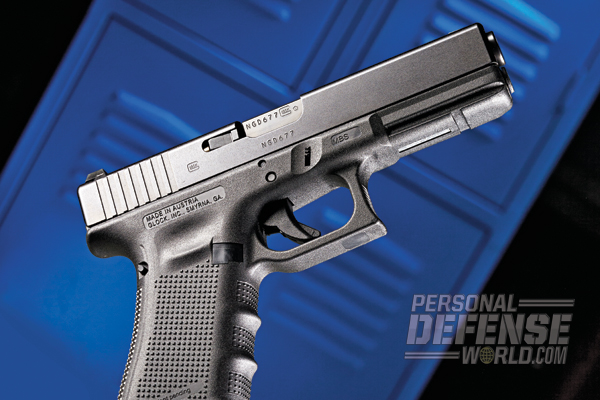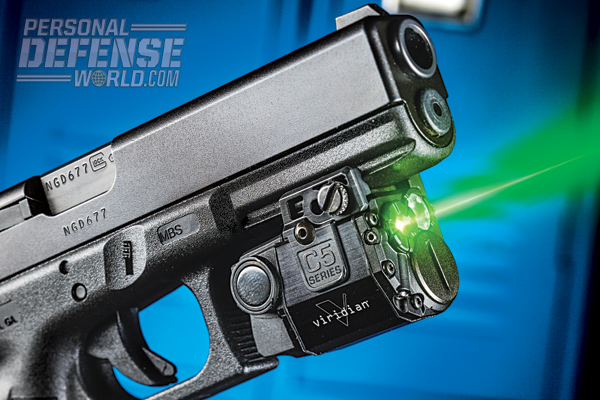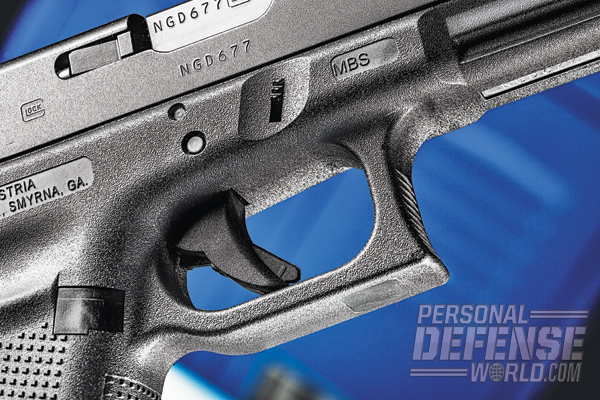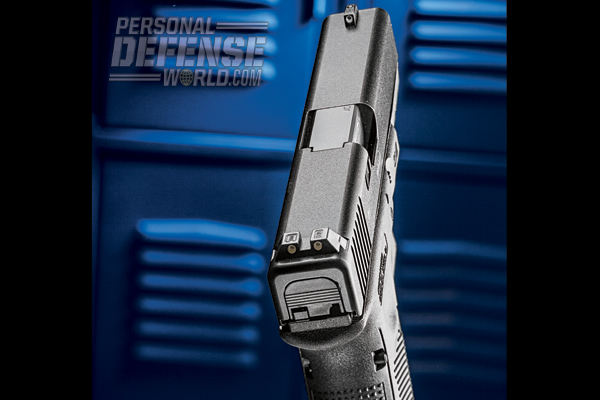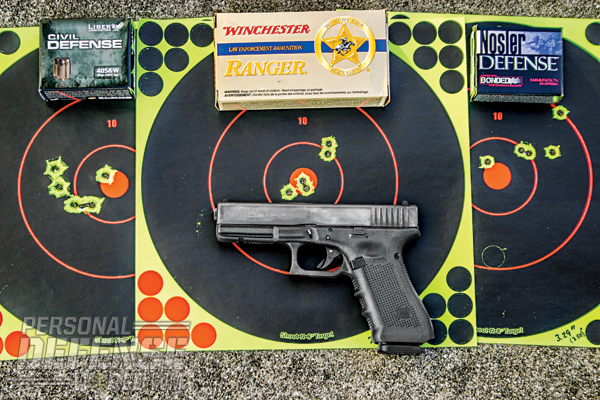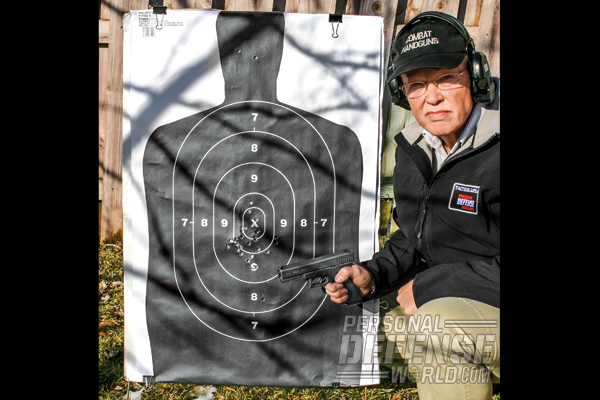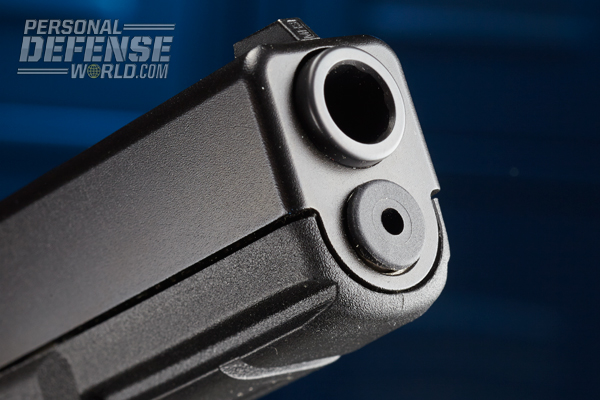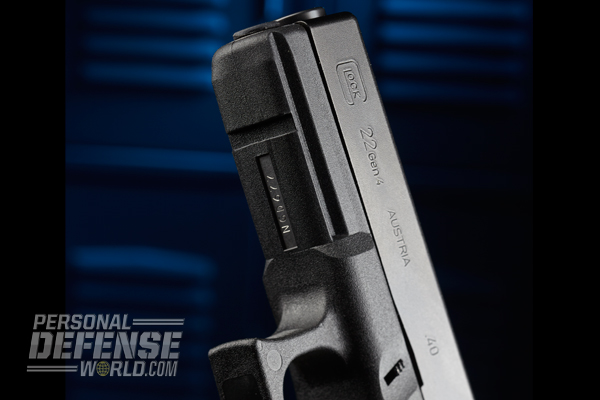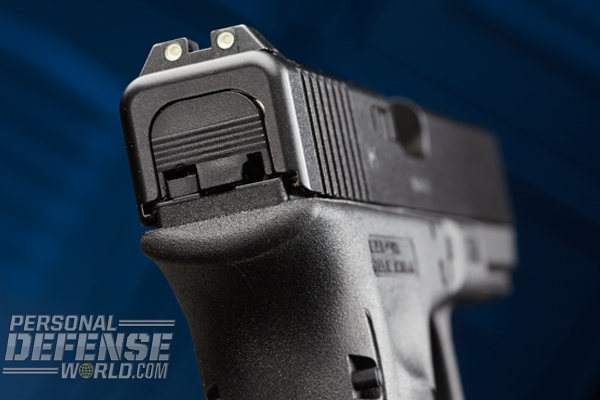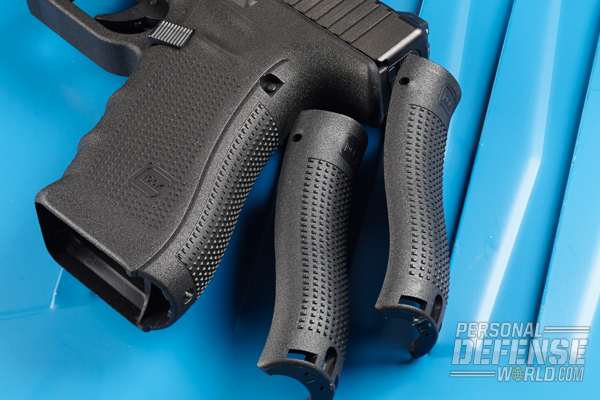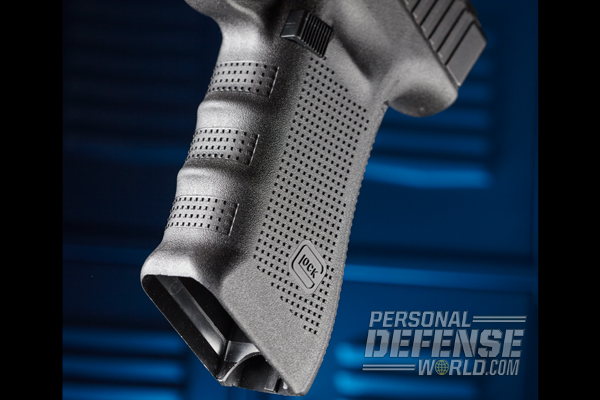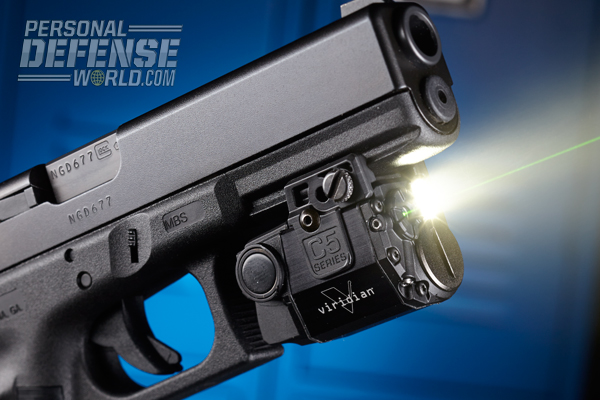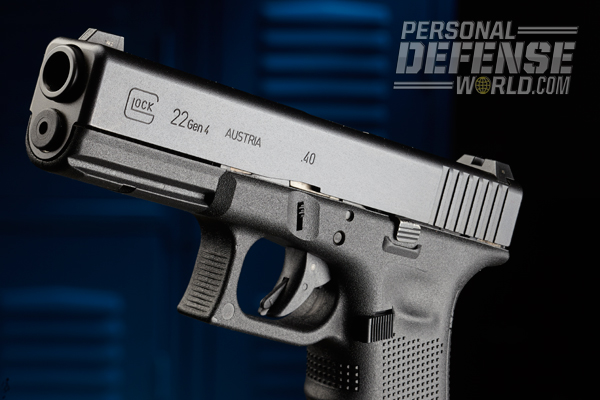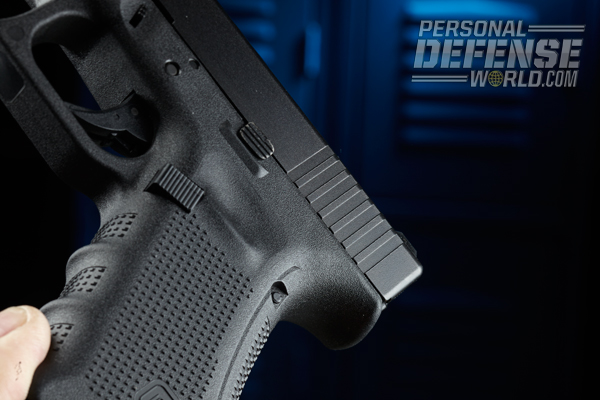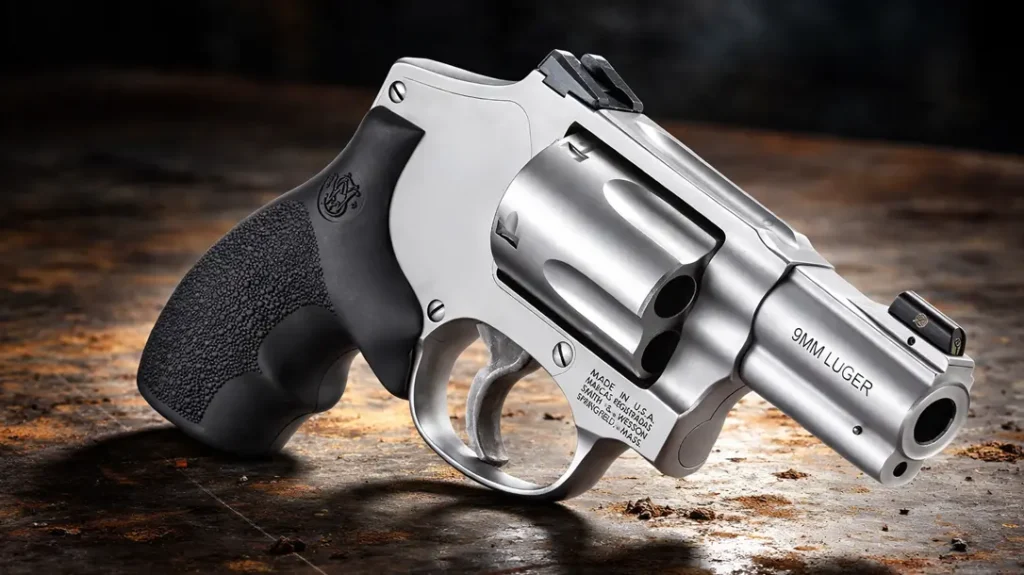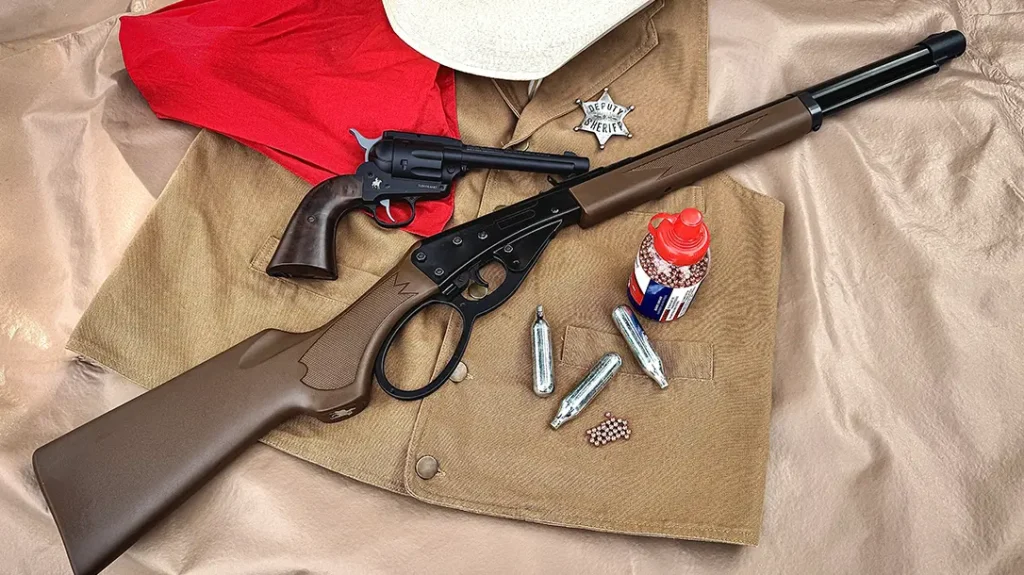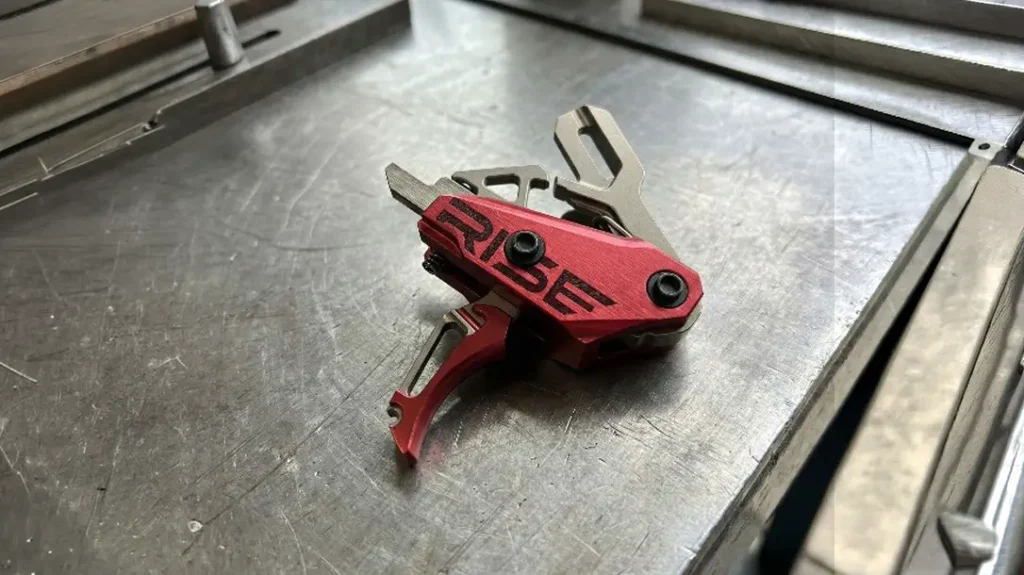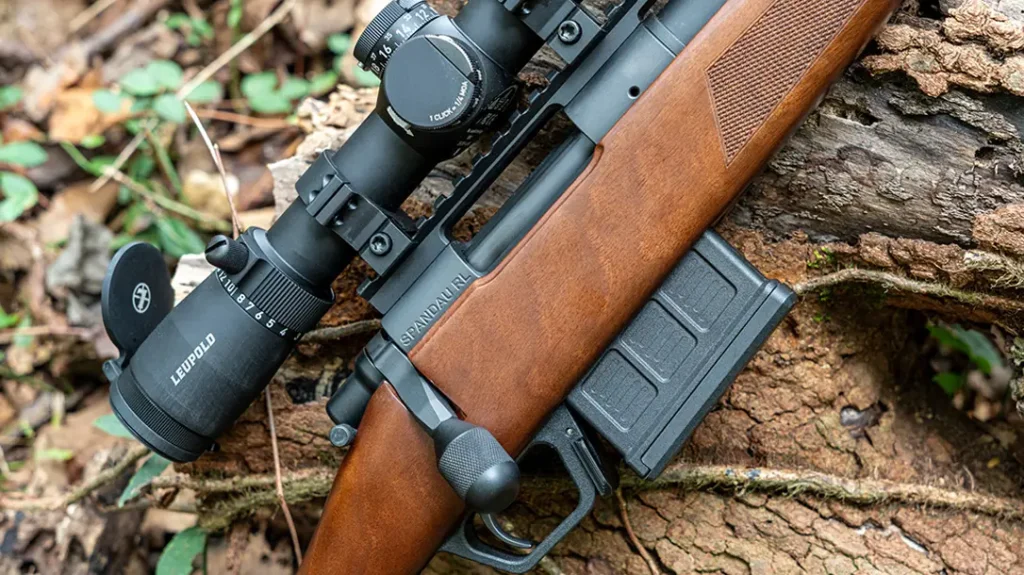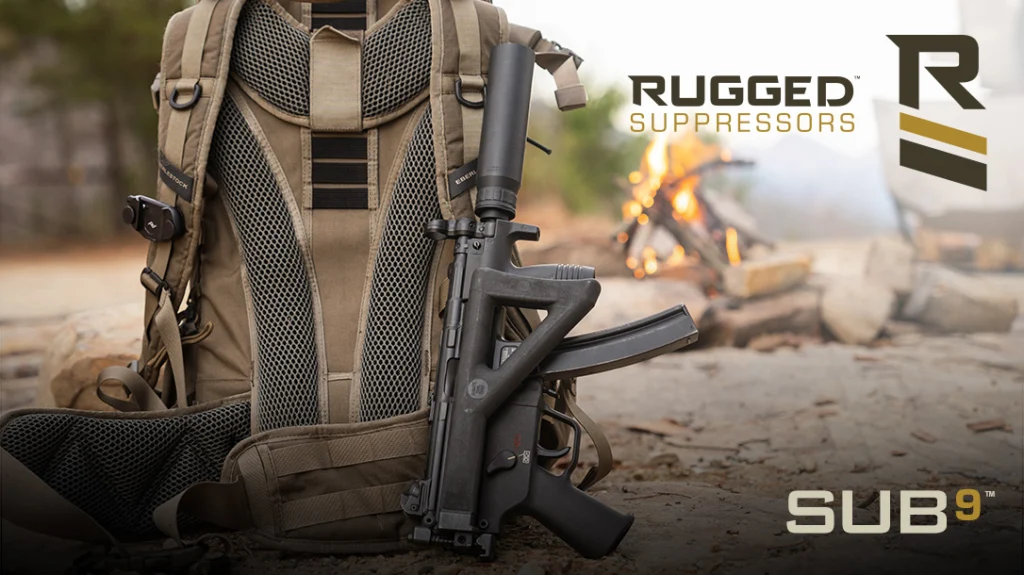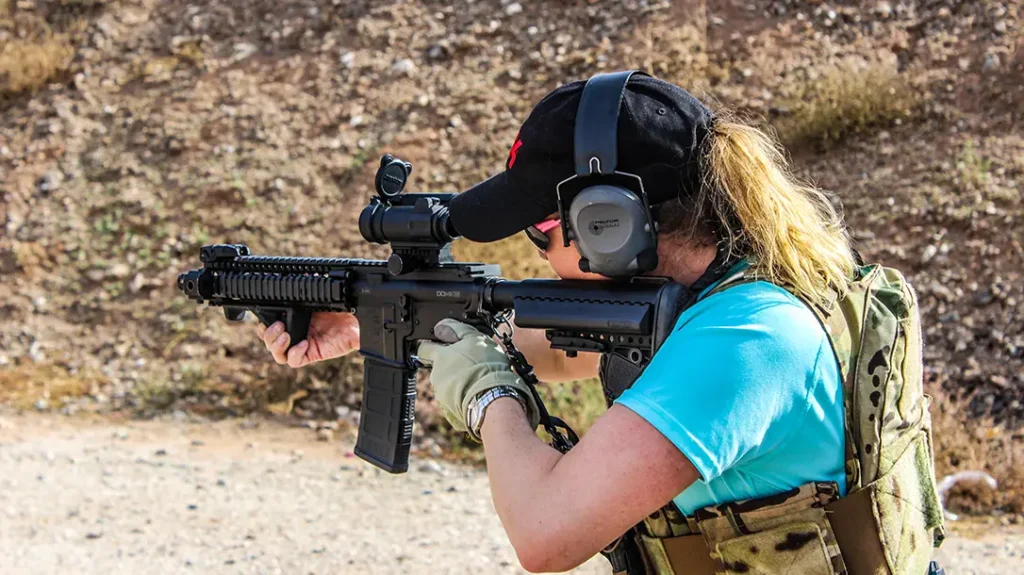In the mid-1980s, an Austrian organization called Glock, named after its founder, began importing a curious polymer-framed 9mm into the U.S., the Glock 17, so named because it was the company’s 17th patent, though the 17 was also indicative of the gun’s round count. The new pistol worked and, despite its unconventional appearance, made inroads into the LE market share. And if cops like something, so, too, do civilians, and the Glock pistol took off like a wild fire.
The cartridge for which the Glock 17 is chambered, 9mm, was a popular round, too, adopted by many military and law enforcement agencies. But, after the infamous “Miami Massacre,” the search began for a caliber occupying a position power-wise between the 9mm and the .45 ACP. The solution was the .40 S&W round, which fielded a 180-grain jacketed-hollow-point (JHP) bullet and a shorter cartridge case allowing its use in more compact handguns. Glock modified its Model 17 to accept the new cartridge and called the resulting gun the Glock 22. It was an immediate success.
I was slow to take advantage of the .40-caliber cartridge, though I briedly carried a Smith & Wesson Model 411. With some 65 percent of law enforcement officers carrying a Glock, the G22 has become a contemporary version of the venerable “Police Special” in autopistol form. As both a law enforcement officer and self-defense-minded citizen, I wanted to test and evaluate the G22, and my interest was further piqued by the introduction of a Gen4 variant. After I made contact with Glock, a spiffy new Glock 22 Gen4 pistol was a few weeks later kindly delivered to my doorstep.
Advertisement — Continue Reading Below

Gun Details
My sample Glock 22 Gen4 came in a plastic carrying case. The case is foam-rubber-lined and includes two magazines, a magazine loader, a cleaning rod and brush, a cable lock, a safety brochure, and an owner’s manual. The Glock 22 is based on the same medium-sized frame as the Glock 17 9mm and has only 34 component parts, which demonstrates the design’s rugged simplicity. The pistol also features Glock’s legendary, striker-fired Safe Action system, which some erroneously refer to as being double-action only. The service-grade trigger pull is factory set at 5.5 pounds, and other pull weights are available.
The pistol’s grip frame is slender; yet it holds a high-capacity, double-column magazine, which on the Glock 22 will hold 15 .40-caliber cartridges (Glock also offers a 22-round magazine). The Gen4 grip frame is modular, with interchangeable backstraps that can be replaced to better conform to each user’s hand size. A new, rough, wrap-around texture on the front, back and sides of the grip provides increased control in rapid fire and during inclement weather. Internally, there’s a new dual (concentric) recoil spring system that increases the gun’s service life, and another improvement is the enlarged, ambidextrous magazine catch, which can be changed over in seconds for left-handed shooters. Add to this an accessory rail located beneath the dust cover and you have a versatile sidearm for many different roles.
Advertisement — Continue Reading Below
The size of the Glock 22 Gen4, with its 4.48-inch, polygonal-rifled barrel, is just 7.95 inches long overall, 5.43 inches high and 1.18 inches wide. This makes it a good uniform-carry pistol, but it’s also not out of place for everyday civilian use. It’s empty weight is 25.59 ounces, and even fully loaded it weighs just 34.42 ounces—about the same weight as a number of older, larger designs that carry fewer cartridges.
Not only does the durable polymer frame weigh less, it’s also stronger than most metals, requires little maintenance and reduces felt recoil. Another factor in recoil and muzzle flip reduction is the pistol’s low bore axis. The barrel is positioned a lot closer to the top of the hand, which causes the recoil impulse to push straight backward instead of down and up. The polymer frame, coupled with the surface-hardened steel slide, makes it almost impervious to rust and corrosion.

offers ample space for mounting lasers like the Viridian C5.
This gun just plain works, and that’s right out of the box with no fine-tuning or aftermarket parts needed. The gun arrives with polymer sights, but, like all Glocks, it can be had with steel tritium night sights.
Advertisement — Continue Reading Below
One other advantage is the gun’s ease of disassembly. The one area where you have to be extremely careful is in making doubly sure that the gun is unloaded before starting the takedown process. That’s primarily because the first step in the process is to pull the trigger, and unfortunately some careless and/or improperly trained individuals have accounted for some negligent discharges when a round was left in the chamber. Once the chamber is clear and the magazine removed, the trigger can be safely pulled, and then all that is required is to manipulate the takedown latch, retract the slide the proper amount and pull it forward off the frame. With the slide off, the captive recoil spring can be removed and then the barrel. For routine cleaning, that’s all that needs to be done.
For this test, I elected to use an IMI Defense Model IMI-Z1010 holster and double magazine pouch. This is a polymer outfit with an easy-on-easy-off paddle-back on both units, contoured for comfort. The holster is a high-ride, open-top design that has a push-button-style retention system that allows a fast, natural draw. There is a tilt-adjustment built into the holster so you can cant the holster angle to your liking using an included Allen key. That same key can be used to adjust the tension retention screw on the magazine pouch. Black in color, this durable holster and mag pouch combo should provide service for many years.
A final accessory for my Glock 22 evaluation was a Green Guide Rod laser sight from LaserMax. The high-tech modules for this system were initially developed by LaserMax over 25 years ago, and I tested one of the early red laser sights in the mid-1990s on a Glock 19. It worked well and was easy to adjust for point of aim, making daylight use at anything but close ranges challenging. The latest guide-rod laser from LaserMax features a power output of 5 milliwatts, has a battery life of one hour of continuous use, weighs only 1 ounce, and is factory aligned for a distance of 20 yards.
Advertisement — Continue Reading Below

Range Time
I recently became aware of some ammunition producers with which I was previously unfamiliar and decided to query a couple of them about .40-caliber test ammunition. The first maker, Nosler, is certainly not an unfamiliar name to the cartridge reloading fraternity, but it is still relatively new as far as complete handgun ammunition production is concerned. I was interested in shooting its 200-grain JHP Bonded Defense load—this bullet weight was at one time felt to be optimal for the 10mm/.40 cartridge. Going to the other extreme, I contacted Liberty Ammunition for some of its Civil Defense cartridges. In .40 caliber, this load features a 60-grain copper, monolithic, fragmenting HP bullet that leaves the barrel at some 2,000 feet per second (fps) with 500 foot-pounds of muzzle energy. For a more conventional, middleweight .40 load, I selected Winchester Ranger LE cartridges with 165-grain T-Series JHP bullets.
“The Glock 22 Gen4 is truly an “everyman’s” handgun, combining reliability, controllability, and excellent firepower with an effective cartridge…”
My day at the range started with chronographing the three .40 test loads through the Glock 22 Gen4. The biggest surprise was the velocity of the Liberty Ammunition load; while the box rated it at 2,000 fps, my Oehler Model 35P chronograph showed an average velocity of 2,130 fps from the Glock pistol. I put up bullseye targets at the 25-yard line and proceeded to shoot three 5-shot groups with each test cartridge from a benchrest position. My best group, shot with the Liberty HP, featured three in the X-ring and three in the 10-ring at 9 o’clock.
Advertisement — Continue Reading Below
For a practical shooting test, I donned the IMI Defense holster and double magazine pouch, then placed a B-27 competition silhouette target at the 15-yard line. I loaded up my magazines with six rounds each of a mix of the test cartridges. Backing off 3 yards, I drew and engaged the target with six shots from 3 yards in a point-shoulder stance with only my strong hand, did a combat magazine change, then fired six more shots support-hand only and again reloaded. I then moved to 7 yards, where, using an isosceles stance, I fired two shots after drawing, then two more from high ready, and then two more before reloading. Next, I performed a body armor drill at 7 yards, where I drew and fired two rounds into the center-mass and one to the head; this was repeated from high ready, then another reload. Lastly, at 15 yards, I used a barricade. Stepping to cover, I fired two shots from the left side standing, two from the right side standing and then two from the right side kneeling. Using the scoring rings and counting the two headshots as 10 points each, I scored 290/300 with 10 Xs. Not too bad, but what I failed to mention was that I’d fired much faster than the allotted times; before I fired each string I’d activate the LaserMax green guide-rod laser sight and used it for my shots instead of the handgun sights.
During testing, the Glock 22 Gen4 performed flawlessly, and the test ammo, IMI Defense holster and LaserMax guide-rod laser all worked famously. I don’t think I could be better equipped for a plainclothes assignment or for self-defense if I used anything else. It’s easy to see just why the Glock 22 Gen4 has become so popular with both law enforcement agencies and civilians. The Glock 22 Gen4 is truly an “everyman’s” handgun, combining reliability, controllability, and excellent firepower with an effective cartridge. In my estimation, it deserves the title of “Police Special,” and I’d have no qualms depending on it as my daily sidearm.
For More Information
Advertisement — Continue Reading Below
Glock
http://us.glock.com; 770-432-1202
IMI Defense
http://www.imidefense.com
LaserMax
http://www.lasermax.com; 800-527-3703
Advertisement — Continue Reading Below

